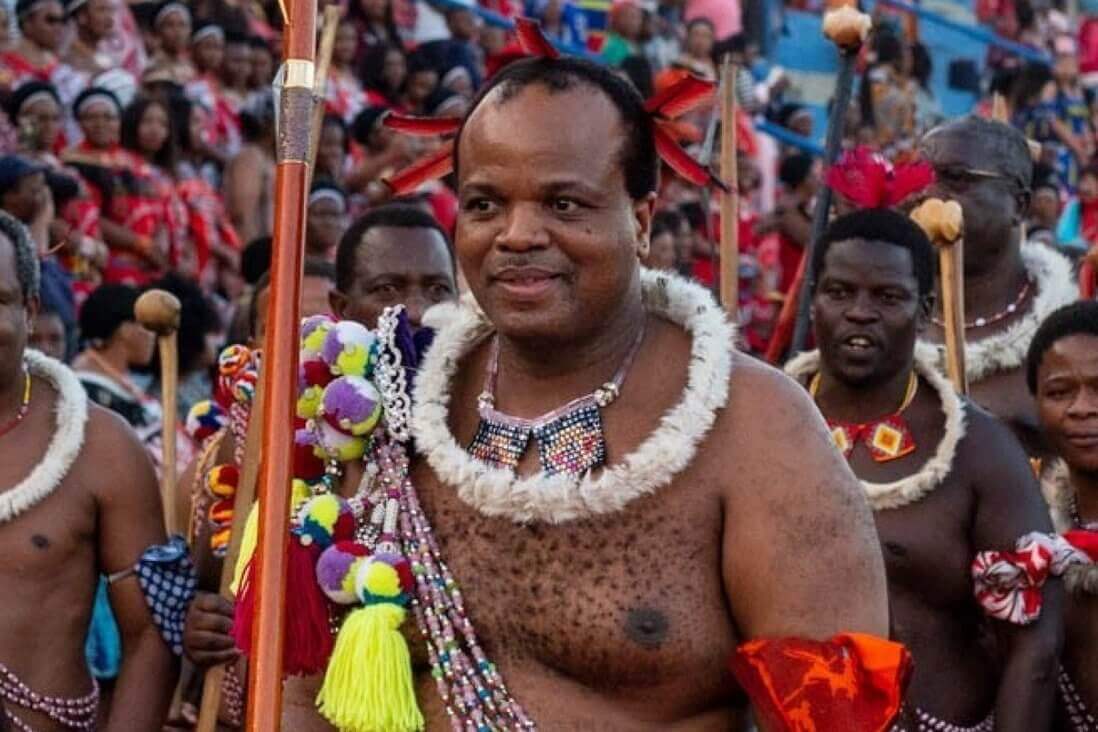The government of Eswatini has imposed a nationwide curfew amid intensifying pro-democracy protests that have reportedly forced King Mswati III to flee the country.
Acting Prime Minister Themba Maskuku announced on Tuesday that a curfew would be in place from 6 pm and 6 am, wherein offices must be closed by 3:30 pm and essential workers will be required to provide a permit after 6 pm. Schools, meanwhile, have been shut down altogether.
Masuku said, “Unfortunately, the protests we are seeing of late have been hijacked by criminal elements. Such cannot be acceptable under any circumstances.”
Swaziland is the only country in Africa with an absolute monarchy, and the King is in charge of appointing the Prime Minister, Cabinet ministers, and a number of top judges and civil servants. Making demands for democracy is illegal under the Sedition and Subversive Activities Act and the Suppression of Terrorism Act. Moreover, the prime minister banned all protests last Thursday. However, this has had little effect in quelling the demonstrations.
In fact, PM Masuku has warned that security forces will be empowered to “maintain law and order.” He has also denied claims that that the King had fled the country, saying he is “in the country and continues to lead.” Furthermore, he said that continued protests could result in COVID-19 cases spiralling out of control.
A lobbying movement based in South Africa called the Swaziland Solidarity Network (SSN), however, has said that the government is using the pandemic as a pretext to suppress dissent. In fact, the internet, too, has been shut down. Furthermore, security forces have erected roadblocks on routes approaching the capital, Mbabane, and the military has been deployed to a number of regions as well.
At least eight people were killed just in the city of Manzini. In addition, over 250 protesters have reportedly been injured in violent clashes with security forces. The protesters, however, appear to be unfazed and continue to demand democratic reforms and the unbanning of all opposition parties, which were banned in 1973 and prevented from running in parliamentary elections.
PM Masuku, for his part, has said that the government will create an e-mail address for disgruntled citizens to send their petitions. However, the government’s commitment to making any of the changes is questionable, given that many of the protesters who have been arrested are aligned with the opposition People’s United Democratic Movement (PUDEMO)
King Mswati III, who has ruled the country since 1986, and is criticised for his lavish lifestyle with 15 wives, while the majority of the country’s roughly 1.2 million residents live in poverty.
Against this backdrop, international rights group Amnesty International has called condemned the use of teargas and live ammunition and called on authorities to “respect the rights to freedom of expression, peaceful assembly, and association.
Deprose Muchena, Amnesty International’s Director for East and Southern Africa, said: “The protests unfolding across Eswatini are a result of years of denial of political, economic and social right to the people, including young people, and recent escalation of suppression of dissent by the authorities. Defending human rights and expressing critical views have been criminalized, and authorities have systematically crushed freedom of expression, association and peaceful assembly.”

